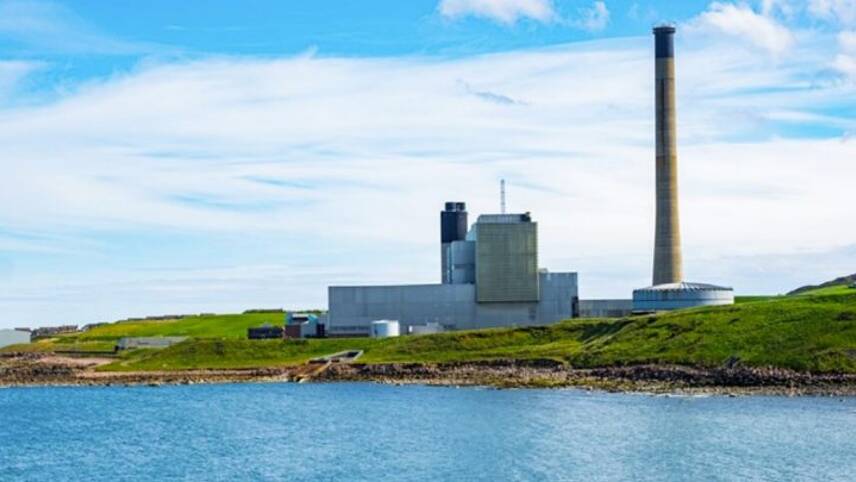Register for free and continue reading
Join our growing army of changemakers and get unlimited access to our premium content

Most of the capacity supported by this auction will come from gas. Image: SSE
The Capacity Market auction for 2022/2023 closed last night (15 February), with bids hitting their highest levels since the scheme was launched under David Cameron’s government in 2014. The scheme awards contracts to generators who promise to increase generation to meet demand if it spikes; it was designed to help maintain energy security as the UK’s demands increase and as more intermittent renewable generation comes online.
All capacity in the auction this week will be contracted at £75 per kW. This is a record high, with the record prior to this round having stood at ££45. In total, some 5gW of capacity has been included in this round.
High bids have been influenced by numerous factors, it is being reported. There is the current energy price crisis, with wholesale gas prices now quadruple what they were in winter 2020-2021, as well as closures of nuclear and coal power stations. These trends mean that more capacity was sought than in previous years.
The majority (almost 3.4GW) of the capacity supported by this auction will come from gas. Less will come from battery energy storage (385MW) and pumped energy storage (85GW) than from coal (411MW). All coal capacity will come from the Ratcliffe-on-Soar plant in Nottingham.
The amount paid in the Capacity Market auctions is ultimately passed on consumers, meaning that, collectively, energy bills in the UK could be pushed up to £375m higher as a result of this auction round.
Nonetheless, analysts are urging businesses and households to be aware that the cost will only account for a very small fraction of bills. The increases caused by Ofgem’s decision to lift the price cap will be far greater. Dual-fuel household bills for homes will rise above £1,900 for the first time from April due to the price cap increase.
“This capacity mechanism auction will add a few pounds to bills, an amount dwarfed by the £500 that high gas prices are adding,” said the Energy and Climate Intelligence Unit (ECIU) analyst Jess Ralston. “At the same time, cheaper renewables are reducing our reliance on volatile fossil fuels and are due to save over £600m from the cost of electricity during this gas crisis.”
Mixed policy signals
When Ofgem announced the increased energy price cap earlier this month, the Treasury announced a rebate scheme to help households cope with some of the additional cost. Green groups quickly urged the Government to develop longer-term plans on improving the energy efficiency of buildings and generating more clean power in the UK, to decrease the nation’s reliance on imported gas.
To the latter point, it was announced shortly after Ofgem’s announcement that the UK Government will provide annual renewable funding auctions through the Contracts for Difference (CfD) scheme, rather than providing funding every two years. This move was broadly welcomed, but there has not yet been an update on plans to improve energy efficiency at scale.
The latest CfD round, which opened in December 2021, was touted as the biggest yet. While the CfD process between 2015 and 2020 was, in practice, only open to offshore wind, other renewables are now able to compete.
Nonetheless, the Government has been doubling down on plans to increase domestic gas production in the North Sea, despite warnings from energy analysts that this will do little to quell the current issue as gas is an internationally traded commodity. Green groups are also arguing that additional production is at odds with the UK’s 2050 net-zero target and sends the wrong message as COP26 host. Additionally, several of the UK’s largest health organisations this week wrote to the Government urging an end to fossil fuel subsidies and a halt to new extraction capacity expansion on health grounds.
Anti-net-zero factions are also campaigning for Ministers to consider weakening the 2050 target and to reverse a decision to end fracking. This latter arguement comes in spite of Cuadrilla’s announcement that it will abandon its two sites in Lincolnshire, described by some as the only viable wells in the UK, and in spite of the continued local opposition to fracking.
Sarah George


Please login or Register to leave a comment.